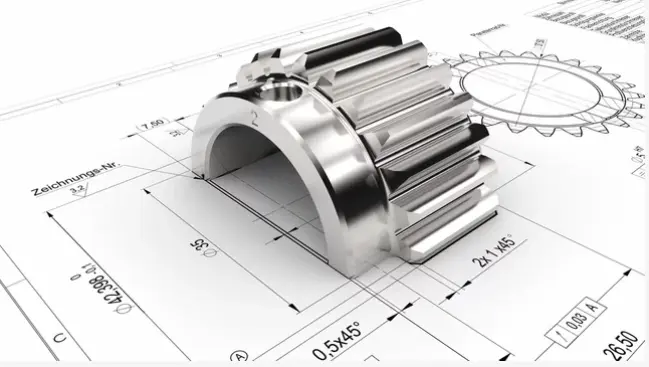Introduction
Welcome to our comprehensive guide to mechanical engineering continuing education. At PDHExpress.com, we understand the importance of staying up-to-date with the latest advancements in the field of mechanical engineering. In this guide, we will provide you with valuable insights, resources, and strategies to help you enhance your knowledge and skills, enabling you to excel in your career as a mechanical engineer.
Why Continuing Education Matters
Continuing education plays a pivotal role in the ever-evolving field of mechanical engineering. As technology progresses and new innovations emerge, it becomes crucial for professionals to continually update their expertise. Here are a few key reasons why investing in continuing education is essential:
- Staying Competitive: The field of mechanical engineering is highly competitive, and by staying current with the latest trends, techniques, and technologies, you position yourself as a valuable asset to employers or clients.
- Expanding Knowledge Base: Continuing education offers opportunities to expand your knowledge base, allowing you to explore new areas within mechanical engineering and gain a deeper understanding of specialized topics.
- Career Advancement: Engaging in ongoing learning demonstrates your commitment to professional growth, opening doors to promotions, salary increases, and more challenging job opportunities.
Now that we’ve established the importance of continuing education, let’s dive into some effective strategies and resources to help you make the most out of your journey.
Strategies for Effective Mechanical Engineering Continuing Education
-
Attend Professional Conferences and Workshops
Attending conferences and workshops is an excellent way to gain insights from industry experts, network with peers, and stay updated on the latest advancements. Look out for events related to mechanical engineering, such as the International Mechanical Engineering Congress and Exposition (IMECE), ASME Turbo Expo, or the American Society of Mechanical Engineers (ASME) conferences.
-
Pursue Advanced Degrees and Certifications
Obtaining advanced degrees, such as a Master’s or Ph.D., in mechanical engineering can significantly enhance your knowledge and expertise. Additionally, certifications like the Professional Engineer (PE) designation can add credibility to your profile and make you stand out in the job market.
-
Online Learning Platforms
Leverage the power of online learning platforms to access a wide range of courses and tutorials tailored to your specific interests and goals. Platforms like Coursera, Udemy, and edX offer courses covering various mechanical engineering topics, such as thermodynamics, fluid mechanics, robotics, and more. PDHExpress.com provides online mechanical engineering PDH courses for PE engineers to renew their license.
-
Engage in Research and Publications
Participating in research projects and publishing papers in reputable journals not only contributes to the advancement of the field but also demonstrates your expertise and dedication to staying at the forefront of mechanical engineering. Consider collaborating with academic institutions or joining professional societies that promote research and publications.
-
Join Professional Associations
Joining professional associations and societies, such as the American Society of Mechanical Engineers (ASME) or the Institution of Mechanical Engineers (IMechE), provides access to valuable resources, networking opportunities, and industry events. These associations often offer continuing education programs, webinars, and workshops to help you expand your knowledge and skills.
Resources for Mechanical Engineer Continuing Education
-
Books and Reference Materials
Investing in quality textbooks and reference materials is essential for deepening your understanding of mechanical engineering principles and concepts. Here are some highly recommended resources:
- “Mechanical Engineering Reference Manual” by Michael R. Lindeburg
- “Shigley’s Mechanical Engineering Design” by Richard G. Budynas and J. Keith Nisbett
- “Marks’ Standard Handbook for Mechanical Engineers” by Ali M. Sadegh and William M. Worek
-
Online Forums and Communities
Engaging with online forums and communities allows you to connect with fellow mechanical engineers. You can exchange knowledge, seek advice, and stay updated on the latest industry trends. Some popular platforms include:
-
- Engineering Stack Exchange:
An online community where engineers can ask questions, provide answers, and participate in discussions. These discussions are related to mechanical engineering and various other disciplines. - Reddit’s r/Engineering:
A subreddit dedicated to engineering topics, where professionals and enthusiasts share insights, news, and engage in conversations. - LinkedIn Groups:
Joining relevant LinkedIn groups, such as “Mechanical Engineering Professionals” or “Mechanical Engineering Research and Development,” enables you to connect with like-minded individuals and participate in industry-specific discussions.
- Engineering Stack Exchange:
-
-
Industry Publications and Journals
Subscribing to industry publications and journals can keep you updated on the latest research, technological advancements, and case studies within the field of mechanical engineering. Some notable publications include:
- Mechanical Engineering Magazine:
Published by ASME, this magazine covers a wide range of mechanical engineering topics, including emerging technologies, career development, and industry news. - International Journal of Mechanical Engineering Education:
A peer-reviewed journal that focuses on educational research and best practices in teaching mechanical engineering. - Journal of Mechanical Design:
Published by ASME, this journal presents research on the design process, methodologies, and innovative design techniques.
- Mechanical Engineering Magazine:
Key Continuing Education Topics in Mechanical Engineering
Your continuing education efforts must be well-rounded and comprehensive. It’s important to explore various key topics within mechanical engineering. Here are some essential areas to consider:
-
- Advanced Materials and Manufacturing:
Learn about the latest materials, composites, and manufacturing processes shaping the industry, such as additive manufacturing (3D printing) and smart materials. - Energy and Sustainability:
Explore renewable energy systems, energy efficiency, sustainable design practices, and environmental considerations in mechanical engineering projects. - Robotics and Automation:
Dive into the world of robotics, automation, and artificial intelligence (AI). Including topics like autonomous systems, machine learning, and human-robot collaboration. - Thermal and Fluid Systems:
Gain a deep understanding of thermodynamics, heat transfer, fluid mechanics, and HVAC systems. HVAC stands for heating, ventilation, and air conditioning. - Mechanical Design and Analysis:
Enhance your skills in mechanical design principles, computer-aided design (CAD), finite element analysis (FEA), and optimization techniques.
- Advanced Materials and Manufacturing:
Conclusion
Congratulations! You now have a comprehensive guide to excel in your mechanical engineering continuing education journey. By implementing the strategies, leveraging the resources, and exploring the key topics outlined in this guide, you’ll be on your way to staying at the forefront of the field and outperforming your competitors.
Remember, continuous learning is a lifelong endeavor. It’s crucial to embrace new technologies, adapt to industry changes, and continually expand your knowledge base. Stay curious, seek out new opportunities for growth, and never stop pursuing excellence in your mechanical engineering career.
Disclaimer: The content provided in this guide is for informational purposes only. While we strive to ensure accuracy, it’s important to conduct your own research. And also consult with industry professionals for specific educational recommendations and requirements.



One thought on “A Comprehensive Guide to Mechanical Engineering Continuing Education”
Comments are closed.